Lexus ES vs Renault Mégane - Differences and prices compared
Compare performance (218 HP vs 218 HP), boot space and price (46600 £ vs 35100 £ ) at a glance. Find out which car is the better choice for you – Lexus ES or Renault Mégane?
Costs and Efficiency:
Looking at overall running costs, both models reveal some interesting differences in everyday economy.
Renault Mégane has a clearly perceptible advantage in terms of price – it starts at 35100 £ , while the Lexus ES costs 46600 £ . That’s a price difference of around 11528 £.
Engine and Performance:
Under the bonnet, it becomes clear which model is tuned for sportiness and which one takes the lead when you hit the accelerator.
Both models deliver identical power – 218 HP each.
In acceleration from 0 to 100 km/h, the Renault Mégane is noticeable quicker – completing the sprint in 7.40 s, while the Lexus ES takes 8.90 s. That’s about 1.50 s faster.
In terms of top speed, the Lexus ES performs somewhat better – reaching 180 km/h, while the Renault Mégane tops out at 160 km/h. The difference is around 20 km/h.
Space and Everyday Use:
Cabin size, boot volume and payload all play a role in everyday practicality. Here, comfort and flexibility make the difference.
Both vehicles offer seating for 5 people.
In curb weight, Lexus ES is slight lighter – 1680 kg compared to 1719 kg. The difference is around 39 kg.
In terms of boot space, the Lexus ES offers somewhat more room – 454 L compared to 389 L. That’s a difference of about 65 L.
When it comes to payload, Lexus ES hardly perceptible takes the win – 470 kg compared to 446 kg. That’s a difference of about 24 kg.
Who comes out on top?
Overall, the Renault Mégane shows itself to be outperforms in nearly all aspects and secures the title of DriveDuel Champion.
It convinces with the more balanced overall package and proves to be the more versatile choice for everyday use.
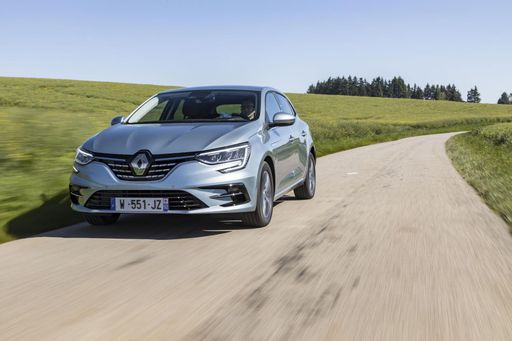
Renault Mégane
Costs and Consumption
View detailed analysis
Engine and Performance
View detailed analysis
Dimensions and Body
View detailed analysis
Lexus ES
The Lexus ES delivers a supremely comfortable, quietly luxurious experience that favors serene cruising over sporting theatrics. It wraps everyday practicality, top-notch build quality and unimpeachable reliability in a handsome, grown-up package that will appeal to buyers who prize calm refinement over headline-grabbing excitement.
details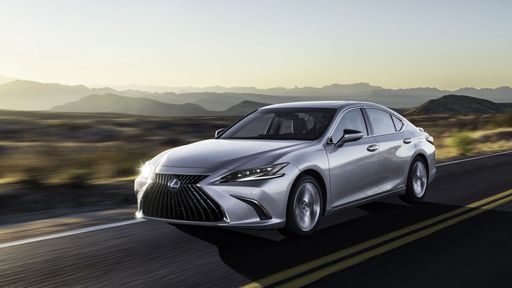
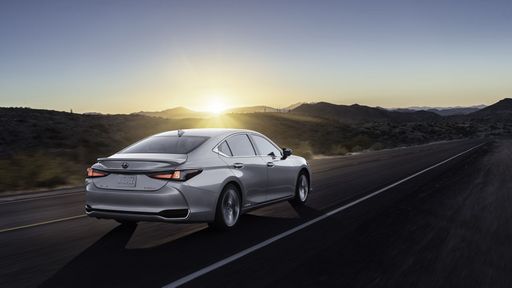

Renault Mégane
The Renault Mégane blends Gallic flair with practical everyday charm, showing that sensible transport can still have personality and poise. It’s a smart pick for buyers who want a comfortable, stylish hatchback that feels a little more special than the usual commute companion.
details
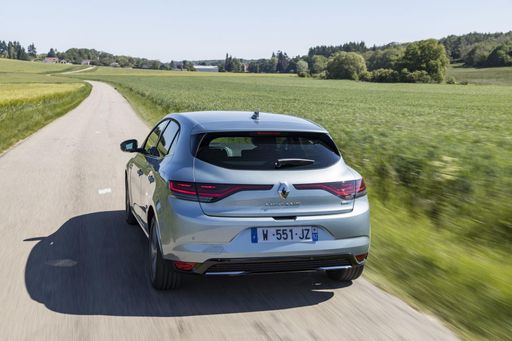
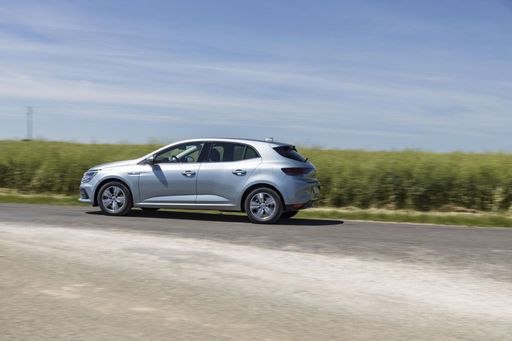
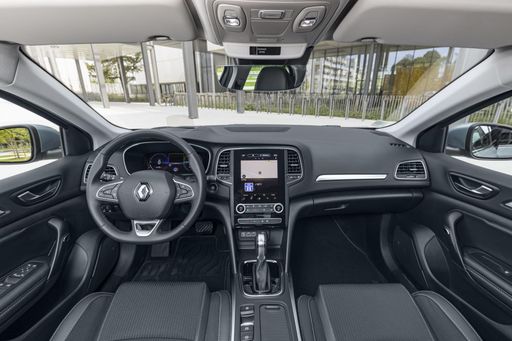
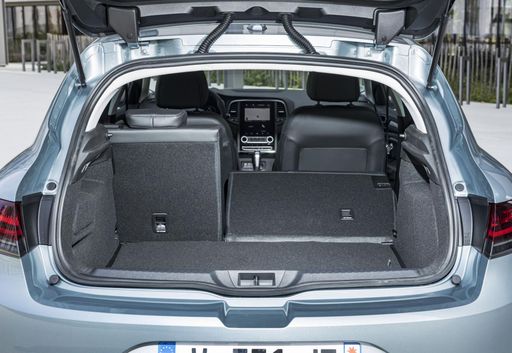
Costs and Consumption |
|
|---|---|
|
Price
46600 - 59300 £
|
Price
35100 - 38500 £
|
|
Consumption L/100km
5.10 L
|
Consumption L/100km
-
|
|
Consumption kWh/100km
-
|
Consumption kWh/100km
15.40 kWh
|
|
Electric Range
-
|
Electric Range
452 km
|
|
Battery Capacity
-
|
Battery Capacity
-
|
|
co2
115 g/km
|
co2
0 g/km
|
|
Fuel tank capacity
50 L
|
Fuel tank capacity
-
|
Dimensions and Body |
|
|---|---|
|
Body Type
Sedan
|
Body Type
SUV
|
|
Seats
5
|
Seats
5
|
|
Doors
4
|
Doors
5
|
|
Curb weight
1680 kg
|
Curb weight
1719 kg
|
|
Trunk capacity
454 L
|
Trunk capacity
389 L
|
|
Length
4975 mm
|
Length
4200 mm
|
|
Width
1865 mm
|
Width
1783 mm
|
|
Height
1445 mm
|
Height
1505 mm
|
|
Max trunk capacity
-
|
Max trunk capacity
1332 L
|
|
Payload
470 kg
|
Payload
446 kg
|
Engine and Performance |
|
|---|---|
|
Engine Type
Full Hybrid
|
Engine Type
Electric
|
|
Transmission
Automatic
|
Transmission
Automatic
|
|
Transmission Detail
CVT
|
Transmission Detail
Reduction Gearbox
|
|
Drive Type
Front-Wheel Drive
|
Drive Type
Front-Wheel Drive
|
|
Power HP
218 HP
|
Power HP
218 HP
|
|
Acceleration 0-100km/h
8.90 s
|
Acceleration 0-100km/h
7.40 s
|
|
Max Speed
180 km/h
|
Max Speed
160 km/h
|
|
Torque
-
|
Torque
300 Nm
|
|
Number of Cylinders
4
|
Number of Cylinders
-
|
|
Power kW
160 kW
|
Power kW
160 kW
|
|
Engine capacity
2487 cm3
|
Engine capacity
-
|
General |
|
|---|---|
|
Model Year
2024
|
Model Year
2025
|
|
CO2 Efficiency Class
C
|
CO2 Efficiency Class
A
|
|
Brand
Lexus
|
Brand
Renault
|
Is the Lexus ES offered with different drivetrains?
The Lexus ES is offered with Front-Wheel Drive.




